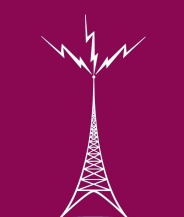Oh yea, I'll post a more in depth article on this topic on January 1, 2010.
0 Comments
I just got done reading an Ebook titled "Communications and Behavior Change" written by Mark Lund, CEO of Government Communications Network. It covers the factors associated with changes of behavior and outlines ways in which these factors can be manipulated. It got me thinking about a recent quote I read from marketing guru Jack Trout that states, "If your assignment is to change people’s minds, don’t take it.”
Let's take a deeper look. At the most basic level, we can look at behavior in the form of the AIDA model. This model states that providing information will spark interest that will in turn lead to an action or a change in behavior. This does make sense, however, rarely is information enough to change a behavior (smoking, tanning, drinking). Attitudes, or personal feelings towards a person, place, or thing have always been linked to behaviors, but the link is not as strong now. For example, just cause you don’t like a certain bar doesn’t mean you won’t go if your friends are all going. Just because you don't like Apple doesn't mean you won't get an iPod. However, just like with providing information, changing an attitude is often not enough to change a behavior. Cognitive dissonance comes when a person holds two inconsistent views. For example, a smoker knows that they could get cancer and live a shorter life, but more often than not they say “I know someone who lived till they were 100” or “smoking keeps me skinny” as factors that justify their behaviors. People often do this when making consumer decisions as well. "I don't really like going to that bar but it's close" or "I don't want to see that movie but it is getting good reviews." The key for communications specialists is to find a way to take out the dissonance, and motivate behavior towards what they really want to do, despite the relative information. Habit and routine are also leading factors in behavior. If you’re used to doing something, most likely you’ll continue doing it. Something new might not be so easy. For example, if you often leave the TV on all night, it would be hard for me to convince you to turn it off every night. If you love eating Red Meat, it would be hard for me to convince you to become a vegetarian. Breaking these habits often requires an emotional stir-up at the point of use. For example, to get you stop eating meat I would need to hang a picture of a bloody pig in front of your refrigerator. To get you to quit smoking I would need to put a picture of your Grandpa who died of cancer on your car’s dashboard. Emotions play a huge part in behavior changes. I suppose this is one of my personal favorites. A lot of the times, communication tries to play on emotions a little too much. For example, I just saw a Christmas campaign for Kay Jewelers that focuses on a deaf woman and her boyfriend signing to one another - too emotional. The dog commercials with the sad music – way too emotional. The thing is, they work. Mental shortcuts are also a common factor of behavior. These refer to instances where you make decisions based on events you can immediately recall. For example, most people are more scared of flying than driving because you can immediately recall a horrible plane crash. You’re more likely to buy a lottery ticket when the prize is the highest because it is easier to visualize what you could do with the largest amount of money. Communications needs to allow people to visualize everything on an equal playing field. Social norms play a huge role in the decision making process. For example, imagine you’re at a party. Typically you’re not the first one to eat whatever food is laying out, but once someone else gives it a try, it’s fair game for everyone to join in. Basic idea, but how can communications agencies send a message of “acceptable behavior” to encourage action? It requires a call to action to companies to be an opinion leader. Drive a message home and send it through respective mediums to gain followers. If you can make a destination the “place to be,” people will come. Environmental factors are another player in the communications game. For example, someone may want to use public transportation but if there aren’t any bus stations around, they’ll have to use a car. Same goes with any business. People might want to go hear live music at your bar, but if they don’t know it exists, where it’s located, or who’s playing, they’re going to choose another option. What it all comes down to is communications 2.0. It's no longer about just throwing a message out, it's about understanding the message, its audience, and their underlying reasons for behavior. Truthfully, I'm still trying understanding all this myself, but i'm excited about the possibilities. In the world of communications, being an early adopter is key. What's even better than an early adopter? An innovator. I look forward to seeing you on the other side. The economy is in the dumps. It's official. I recently read an article from a recruiter who posted a job on Craigslist and received over 200 emails within a few hours. For the past few months, I've been one of those emails. I've been part of the lucky few to actually get a few interviews here and there. The problem? The competition is so stiff out there that it's almost ridiculous. There's no more chances, optimism, or hand-holding; you either fit the bill perfectly or you're not getting hired. Simple as that.
Rather than sit around and keep waiting to find the next posting on Craiglist or Monster like the thousands of others out there, I've decided to take a stab at a new, more productive approach to the down & out economy: consulting. A lot of people were confused by my Thanksgiving post. What is he doing at Upper End Properties? What is his business? What's going on? For those of you wondering, I'll give you a brief update. In October I was given my first "consulting" job as the marketing specialist for Upper End Properties, a brand new real estate company in Clayton between Brentwood and Hanley. What am I doing? I'm leading strategy behind digital and online marketing. What does this consist of? I'm giving the company a brand presence on Linkedin, Twitter, Facebook, Google, and Wordpress. I'm producing content, socializing, interacting, and doing my best to increase brand awareness and generate sales leads by using cost-effective methods that reach a direct target audience. A lot of people laugh about this whole idea of social media marketing. It's not a full-time job, it's not the end-all of marketing, and it isn't the most effective medium to get results or a return on investment, but it's free, it's powerful, and it is revolutionizing the way people interact with brands. Sure, most people can't make a living tweeting for a brand, but imagine tweeting for 5 brands. Imagine building a Facebook presence for five small companies. The future of business may not be digital, but it will be social, and if I can lead businesses in the right direction with low-cost solutions, this fad may just turn into a full-time opportunity. This leads to to where I'm at now - in the business of consulting. Without giving too many details out prematurely, I will say that there are some very exciting opportunities on the table. With the new year will come some new information regarding this business and I look forward to filling you all in. The first thing that comes to mind when I think of Thanksgiving is the idea of sharing. It's the time of year when everyone gets together to share food, drink, shelter, and stories. It's the time when we look back on the past year and think of what we're thankful for, what opportunities we've had, and how we can better ourselves in preparation for what's right around the corner: the New Year.
This past year has been very crazy for me. I met a wonderful girl, I graduated college, and I watched my sister welcome a wonderful baby boy into this world. These monumental changes in my life have all led to new opportunities, new experiences, and new challenges and I'm extremely grateful that everything has worked out for myself and my family. As most of you know, over the past few months I've been struggling, like many others, with the economy and what its done to the current job market. I'm thankful for the opportunity I've been given by Upper End Properties in letting me come in, essentially create my own job title, and allow me to build my business from the ground up. I'm excited about the opportunities this position will bring me over the next few months and the potential it has to grow well into the new year. I'm also thankful for my friends. I'm thankful for the fact that no matter how many times I don't pick up my cell, how many times I decide not to go out, and how many times I blow them off for whatever indie film is playing at Plaza Frontenac, they'll always be there to call me the next weekend. It's rare to find such persistence in people, and I appreciate it more than anyone would know. Most importantly I'm thankful for everyone who's stuck with me and this blog. I'm still not positive where I'm going to go with it, what I'm going to do with it, or whether or not people REALLY enjoy reading it, but still, looking up analytics and seeing 190 page views on average, per post, is something I'm extremely grateful for. I may not be the best writer, I may not always interest you, but you keep coming back, and I can't stress to you enough how much I appreciate it. As I've said before, Thanksgiving, to me, is all about sharing. I encourage you to write a blog, a note, a status on Facebook, or a 140 character tweet on Twitter. In a time where a "thank you" is only a click away, there's no excuse not to tell someone how you feel. Happy Thanksgiving to all, and thanks for a wonderful year. I've been experimenting a lot lately with new marketing tactics. Little things that I think can be extremely effective at little or no cost to an individual, a brand, or a company. For example, tonight I was at Pomme Wine Bar in Clayton with a few friends. On my way out, I placed two business cards on the table, and strategically dropped one on the floor on the way out. I mean, truthfully, the two on the table probably got picked up by the hostess and thrown away, and the other probably got swept up into the trash, but I can't help but think about the possibilities.
Imagine the hostess being the daughter of a couple who was looking to buy or sell a house. She'd see the card, mention it to them, and there's a sale. Imagine the young couple sitting next to us was in the market for a condo and they saw the card on the floor as they were leaving the bar. By the end of the night, I got 800,000 worth of sales possibilities just from dropping a few cards. Total cost of the marketing on my end: about 10 cents. The problem we often face in marketing is lack of participation by the audience. We can deliver some great messages through some very effective mediums, but if the audience isn't "getting" the message and exploring it on their own, then nothing has really been accomplished. I'm a marketing guy. I live for it. I dive deep into brands, interact, entertain, and engage in almost anyway way I can. The problem lies in the fact that most people aren't as fond as I. For example, being with a real estate company right now, I could go out to a parking lot and hit 100 cars with a flyer that said "TheBestHousesEver.com" that linked directly to our listings. If I got this flyer, I'd go to the site, but 99% of other people probably wouldn't. I think what I'm getting at is the idea of guerilla marketing. Giving people the chance to receive a message, but relying on them to put in some work. Is this type of messaging effective? Would you pick up my business card? Would you go to the website? I'm interested in how far people will go into the unknowns of advertising. I know the road I travel, but I think most audiences take a slightly different path. I've finally figured something out. It's something I've never really thought about, something I'm not necessarily proud of, but something I've learned to love. What is this profound realization that I speak of?
I have no niche, I'm not an expert on anything, I don't have a specific skill, and I'm not 100% sure what my strongest asset is. Sounds horrible right? Wrong. I like to consider myself a generalist. Whereas an expert is fundamentally better than everyone else at one thing, a generalist is someone who is very good at a lot of different things. I'm a writer, an active participant in social media, a blogger, an informer, a team player, a multimedia strategist, and a marketing planner. I'm not 100% devoted to any one of these titles. Quite frankly, I feel like I could add or subtract to this list at any time. The question I'd pose to you is this: "In this current economic time, what is more valuable in an employee, an expert in one specific area, or a generalist dabbling in all realms of a certain industry." In a recent interview with an account planner, I was given this piece of what I'd consider invaluable advice: "As an account planner, you should be a second best at everything you do. You need to be the second best copywriter, the second best developer, and the second best creative director." This is great advice for the ad industry, but I'd like to hear some opinions from other people as well. I personally like to believe in a wider skill set being more effective, more useful, and more accessible to a wider range of companies, but then again, maybe I'm just crazy; generally speaking or course. Last Friday, I had one of the most pleasant conversations with a stranger I’ve ever had. That’s the beauty of the Internet I guess. Most of the time I’m a listener, but in this case, out of pure instinct, I entered into the conversations. What follows is a conversation I had with Bob Bishop, a St. Louis job recruiter. He’s got a very insightful blog that I’d recommend checking out. I’ll start things off with his original post which I was immediately drawn to.
Are Employers “Paralyzed By Perfection” in the Hiring Process This week I’ve started wondering if employers are literally unable to hire because of a need for “perfection” in candidates. Some of the interviewing processes seem so complex with so many interviews, sometimes stretching out over weeks and including multiple senior executives, I don’t see how they actually can get anyone hired. It’s like approval by committee, it never works! There’s such a fear of hiring the wrong person, that the company is completely paralyzed by the search for (their perception of) perfection. They end up not hiring anybody . . . imagine what that costs! As an example, a candidate I’m working with sent me the following email.”Wanted to also let you know that I’ve made it to the fourth round of the interview process with a private company in St. Louis… a Director of Marketing position. After my resume made the cut, I’ve had three different telephone interviews (HR Director, interim Marketing Director and VP of Marketing). Got the call yesterday for a personal interview. As far as I can tell, they’re down to 4-6 candidates so I’ve got my fingers crossed. If I can pass this phase, I think there’s one more round of interviews with the President for the last 2-3. “It was about three days later, I received this note from the same candidate, “So I made it through seven face-to-face interviews and five phone interviews in five different ‘phases’ with the same company, only to learn last week that they have renewed their search and still haven’t found “the right candidate.” Said they’d received over 300 resumes. Hard to believe they couldn’t find ONE candidate they believed could do the job. Oh well, live and learn.” A total of 12 interviews before this company decided this isn’t the right candidate? Wow! How could it possibly have taken that long to make a “No” decision? What was everyone talking about for all that time? Imagine the time and expense in that many interviews with “4-6″ candidates? Does that company have any idea what they’re looking for? I think not. The same thought of “paralysis through perfection” comes to mind when I hear horror stories about putting candidates through “Personality Profile or Assessment Testing”. You know, the kind of test that’s generally taken online (pr sometimes in person) by the candidate? There are loads of them out there . . . Caliper, Wonderlick, DISC, Kolbe, Myers-Briggs. Some companies have the candidate complete more than one! In many cases the current employees of the hiring company haven’t even taken the tests, so there’s no benchmark for performance in their own culture. It’s a very good idea for those involved in the hiring process to take the same test they’re asking candidates to take . . . or why bother? Testing seems like just one more level of “CYA” on the part of the hiring authorities . . . one more hurdle in the search for candidate/employee perfection. I understand how some in occupations, testing is a good idea . . . airline pilots jump to mind, but I’m skeptical about it’s value in many, many other functional roles. Thoughts? Have an interview or job search horror story to share? I responded with this… Bob, It’s amazing how close this post comes to describing my personal feelings about the hiring process. I can see the potential for a more in-depth process at the senior level, but I’m a recent graduate applying for entry level positions, and I’m finding that the barriers to entry are almost outrageous. On one hand, I see the dilemma. For every one position out there, there’s essentially seven or eight individuals ready to snag it up. My complaint comes not only from a horror story related to a recent interview, but the fact that most of the time, individuals like myself can’t even get a chance to take part in the interview process before getting rejected on terms of “not meeting the qualifications.” Obviously, all companies will remain anonymous here, but there’s multiple worth talking about. As a recent graduate looking at entry level positions/internships, the requirements usually involve traits such as “someone organized, a passion for industry, a great communicator, a writer, and someone who is fluent in social media.” For starters, I find it hard to believe that a resume can accurately describe how organized you are, how great of a communicator you are, and how passionate you are about the industry. For someone who has marketing experience through an internship (albeit through College, not an agency), real world experience marketing at a St. Louis company, a social media web presence (blog, twitter, facebook, linkedin), and a affiliation with some relative St. Louis networks, it becomes a little disappointing to continually “not meet qualifications” before a face to face connection (or even phone to phone) is established. About two months ago, I finally got the chance to show, face to face, what I was all about. The company had seen my website, followed me on Twitter, and saw me for more than just a resume. It started with a phone interview, nothing serious. Two weeks later, I arrived at the company for a six-hour interview. I actually didn’t mind the length of the interview. Meeting with seven individuals gave me the chance to get the jitters out with the first two, and get more and more familiar with what the company was about. After the interview, I was told it would be about a week or two until I heard back. I sent the traditional Thank You notes and looked forward to hearing back. I figured, surely they wouldn’t have spent the whole day with me if they weren’t serious about me. Two and a half weeks later I was contacted to do a project. I was shocked because originally I was never told anything about this. I didn’t care, but I was confused because I was told to do a writing assignment, when, during the interview, all we did was talk about my blog and all of the recent articles that I had written. I was told to take a brand that I like and create a campaign using traditional and unconventional media. This was my chance to shine! I put on a great show for the company. Thought I’d hear back. Two weeks went by – nothing. I called them to ask where they were at in their decision. I got no answer. To this day, I have never heard one thing back. I’m by no means a self-righteous person. I know I’m not the most qualified candidate, the most experienced, or the perfect person. I am however, very confident in my ability to meet and exceed the job requirements for each position that I apply for. The problem we face now, through websites such as Twitter, Linkedin, and Facebook, is that we can see who’s working at what company, who gets hired where, where they went to school, and what experience they have. When we’re rejected based on “not meeting qualifications,” it’s hard not to jump on these social networks and find out what qualifications the individuals have who are working there now. Most of the time, especially at the entry-level, there is nothing spectacular. All in all, I have the same mindset as you. It’s good to know that I’m not the only one thinking about how perfect a person must be to get hired in today’s economy! I enjoy your posts. They keep me motivated in this never-ending job search. I appreciate the advice. - Michael Buffa He replied with this… Hi Michael! Thanks so much for taking the time to share your experience, I know that others will take some heart when they read it, realizing they’re not the only ones who are going through this (at any level). Entry level positions are a whole issue of their own. I continually hear that an employer’s response at the entry level is “you don’t have enough experience”. The obvious question is, “How can I get experience when nobody will hire me because of a lack of it?” The answer to the question is generally that the candidate should have thought of the “experience” issue sooner. They should have participated in work activities and/or internships in the field of their choice, thereby showing how serious they are about wanting to be successful in their career, and starting to get some experience while doing it. It sounds like you did that. Frankly it sounds to me like you did everything as well as you could. I agree with you that it’s outrageous that after asking you to spend time and effort for them, they don’t have the courtesy of responding. It’s annoying. If the repercussions weren’t so obvious, I’d tell you to let everyone know who the company is . . . they don’t seem to have much respect for candidates interested in working with them. You’re probably lucky you didn’t get the position, only to find out later what kinds of people you’d be working for (and/or with). The only thing I can suggest to you is patient persistence. Network like crazy. Volunteer for causes that interest you and where you will be able to meet people who can help your career. You’re already blogging and tweeting, which should have given the employer a good idea of how you conduct yourself and how you think. I think those activities are very important . . . and fun! You know you’re good and you know that you’re ready to bust your ass for your first (and every other) employer . . . all you need is a chance. You’ll get it. Your passion and effort are obvious. Some smart company is going to offer that opportunity you want (and need) so badly. One other thing. I’m not finding you in our database. I suggest that you visit our website at http://www.Bishop-Partners.com and upload your resume. If you do that, I’ll respond. Thank you once again for your comment. You’re helping others by making that sort of effort. I wish you all the best in your efforts for that first killer opportunity. _____________________________________________________ In a time when there aren’t too many people out there lending a helping hand, this conversation with Bob definitely lifted my spirits. There are jobs out there, they’re just looking for the most talented, most passionate people out there. I’ve decided it just might take going that extra mile to get there. Thanks for the inspiration Bob. Check out the Marketing Recruiter blog here. True or False: It is easier to convince you to eat a Big Mac than to convince you that eating a Big Mac is a good thing to do.
True or False: It is easier to convince you to go to Las Vegas than to convince you that going to Las Vegas is a smart thing to do. If you answered “true” to both of the questions above, you’re either A) very smart or B) one of the individuals who attended last night’s Rebus Event at Hoffman | Lewis. A quote from marketing guru Jack Trout and an excerpt from Hoffman | Lewis’s Performance-Based Advertising Model says it best: “If your assignment is to change people’s minds, don’t take it.” On November 10, 2009, 50+ members came together at Hoffman | Lewis to interact, entertain, and engage in all things advertising. The topic of the night: PBA, or what Hoffman | Lewis has coined, “Performance-Based Advertising.” The night started off with a brief Q + A led by Mark Schaeffer, president of Hoffman | Lewis’s St. Louis office. The first question he asked the rowdy members of Rebus: “Why are you here?” Among the most popular responses were to network, to learn, to find out more about different companies, and most importantly, to get some free food and beer. Some things never change. Next up was Mark Manion, VP and Creative Director at Hoffman | Lewis who entertained the audience with some recent work done for a few of their biggest brands: McDonalds, Ashley Furniture, and Missouri Tourism. Highlights included Office Zombies in serious need of some coffee, Cowboy Dave lassoing low prices in the wrong store, and some 30-second spots that will make you consider staying a little closer to home for your next vacation. To cap off the event, Hoffman | Lewis brought in the most important piece of the puzzle: an actual client. Brian Hall, Chief Marketing Officer of the St. Louis Convention and Visitors Commission, walked us through the process of taking St. Louis from what some consider “flyover country” to what he considers a literal diamond in the rough. For those wondering what to expect from a Rebus event, here’s what I can tell you: you can expect coolers, cocktails, cameras, and commercials. You will meet creatives, copywriters, account planners, and interns. Most importantly, you’ll make acquaintances, create connections, and establish relationships with the best and brightest St. Louis has to offer. A special thanks goes out to Hoffman | Lewis for hosting such a fabulous event. Lessons were learned, friendships were made, and stories were shared. We look forward to doing it again in January. So, how about making that New Year’s resolution early and making sure to get on the Bus in 2010! Find out more about Hoffman | Lewis and see all of their work at http://hlinstl.com I love the idea of experimental advertising. A lot of companies have dropped the experimental label in exchange for more traditional words such as engaging or inspiring. The word experimental itself isn’t as glamorous as it used to be. In the past, companies had the time, the budget, the ability, and the interest to experiment on new ideas, new campaigns, and new ways to drive consumer awareness. Nowadays, companies can barely afford to put out a campaign, not much less experiment with one.
I give credit to the companies going out on a limb and toying with this idea of experimentation. Quite frankly, all the blogs I follow, all the sites I read, and all the marketing that resonates with me tends to fall into this idea of something extraordinary. I’m no longer excited by television ads, I’m just interested. I’m not longer attracted to web banners, I tend to ignore them. I’m not longer enthused about billboards, I just accept them. I think I’m just one of many looking for that next big thing in marketing; a thing in which I truly believe will be experimental. Some of the best campaigns that I’ve seen recently aren’t traditional at all. Sure they’re websites, but they’re much more than that. They’re experimental ideas, interactive platforms, interesting to consumers, and exciting for everyone. They might not bring back a 100% ROI, they might not increase sales or brand awareness, they might only reward a small segment of consumers loyal to your brand, and they might only create conversation in certain circles. The fact of the matter is, no matter what the message or medium, they are providing an outlet for engagement, an experimental attempt at advertising/pr/marketing/media arts 2.0. Let’s start with the Kodak Experience. It’s essentially a full-screen application that can be accessed via the web at this site. It is an interactive site that shows how 9 different individuals connect with one another using different Kodak devices. If you click on the Dad, it shows how he can record his son playing basketball with his Kodak Pocket Video cam. If you click on the Grandma, it shows how she stays connected with her Kodak Easyshare camera, making it easy to take and send pictures of her grandkids. Is Kodak going to sell more cameras by allowing us to play around on the site and see how people can connect? Probably not. But is it something fun, exciting, experimental, and entertaining that will allow extra engagement with the Kodak audience? Most definitely. Next, let’s look at Kleenex’s newest interactive campaign. It’s called Get Momm’d. You can access the website here. It’s an interactive platform that gives you access to 7 different moms. After you choose one, based on a variety of different categories, you can then connect them and receive advice for different things you might need. For example, if you’re sick, you can have your virtual mom send you a recommendation via text or email on how to get better. If you need a new dress, she might be able to send you links to her favorite places to shop. As said on the site, Mom’s specialize in being helpful. You can pretty much go anywhere from there. Now honestly, does this really have any correlation to Kleenex? Not really. Are they going to benefit? Who knows? Are girls everywhere going to be playing around with the platform? You bet. Experimental, exciting, out of the box, and extraordinary – the future of marketing? I don’t want to get ahead of myself here. I see the importance and the necessity of traditional media. No matter what you do for a brand, it will always involve traditional elements. I guess I’m just more or less wishing and hoping for a more experimental future. If more companies experiment, more consumers will become engaged. Marketing will no longer be an accepted practice, it will be an influential practice. More companies will spend on ideas, and more money will be spent on idea makers. There will be a resurgence of advertising, an influx of interactivity, and an ever-growing interest in the ways that brands are going to connect next. I think the talent is out there. I read about the big ideas everyday. I want to be a part of the revolution. I just need the revolution to happen first. If anyone is on board, let me know. I’m an account planner with no accounts. I think there’s more room for experiment in this time of oh-so-similar ideas, but then again maybe I’ve just had too many cups of coffee. The conversation started around 1:15 PM and ended around 1:27PM. Let's just say I wasn't a good fit. The position we discussed on the phone sure as heck didn't seem like a Field Marketing Specialist. It sounded more like a Promotions Manager. They needed someone to find brand ambassadors, someone to tell them what bars to go to, and someone to make sure they interacted with college students at parties, bars, and sporting events. Sure it all relates to marketing, but does it really warrant the label, "marketing specialist?" On the phone I talked about the big ideas that I had for this position. If we wanted to create a local brand, we would need local platforms to interact with St. Louis on an individual level. We would need a Twitter account, a Facebook page, and a blog. We'd post up to the minute messages to let people know where we were. We'd have a GPS enabled map on our Facebook page so people could find us. We'd post pictures, videos, interviews, creative content, and anything and everything Red Bull. We'd post bios of our team members, we'd sponsor parties, and we'd create connections through each and every social network in STL. We'd post random Red Bull stashes in STL and promote the whereabouts through Twitter and Facebook. We'd take pictures at parties and post them on Facebook. We'd give individuals links to download the pics the next day. We wouldn't just show up to a party or a sporting event, we'd be the reason people would be going to these events. Think of it as promotions 2.0. To the HR woman I interviewed with, these ideas labeled me as a "good fit for the interactive department at Red Bull." I guess they are late in the game in realizing that interactivity is now apparent in almost every aspect of marketing, especially in promotions. Sure, Red Bull can get by by just putting people at events to pass out samples. I just wish they'd realized that that's an outdated view of field marketing. We're in a new age now. Interactivity, connectivity, and communication are what consumers want. How better to give this to them, than to create a team of loyal, local, and connected individuals who not only live the brand while they're working, but also when they're sitting behind their computers. Let me know your thoughts. I think I'm on to something, but maybe I've just had too many Monster Energy Drinks. |









 RSS Feed
RSS Feed